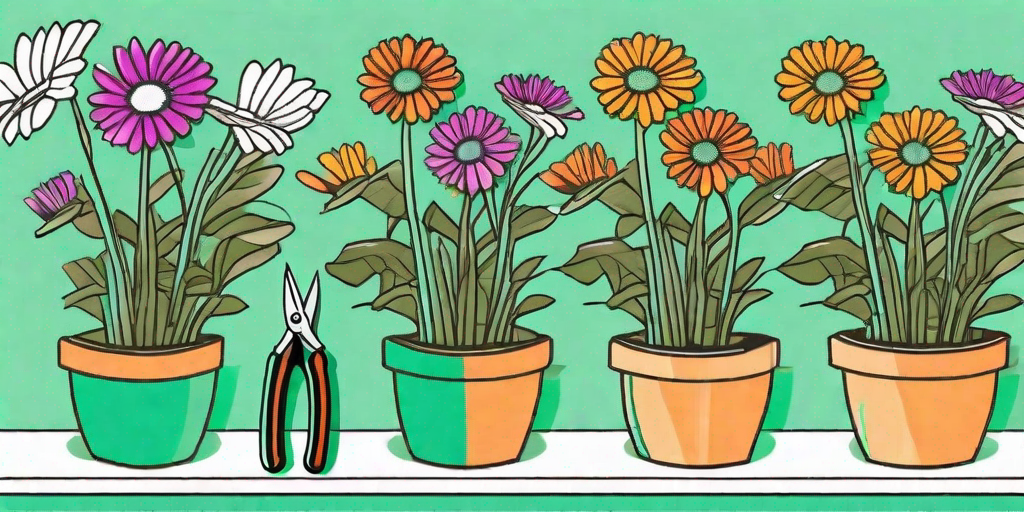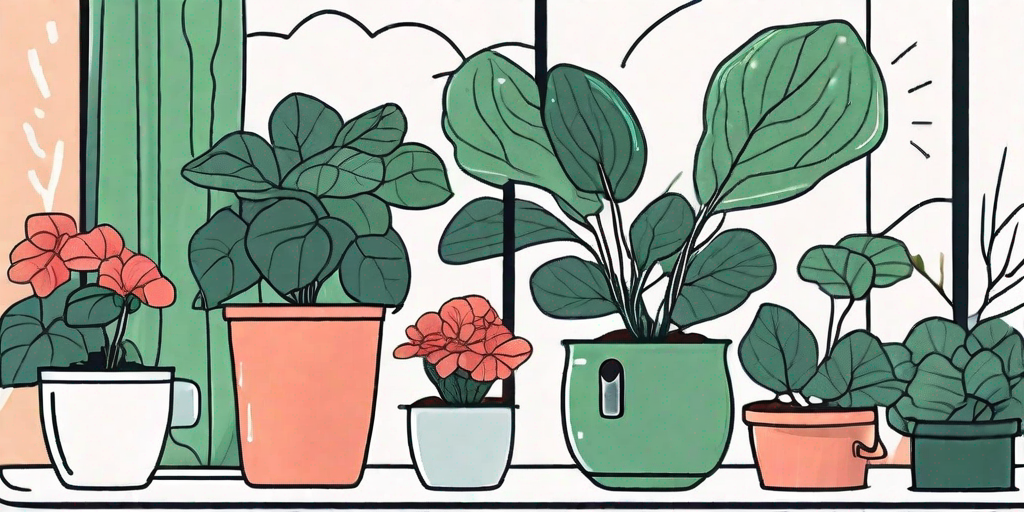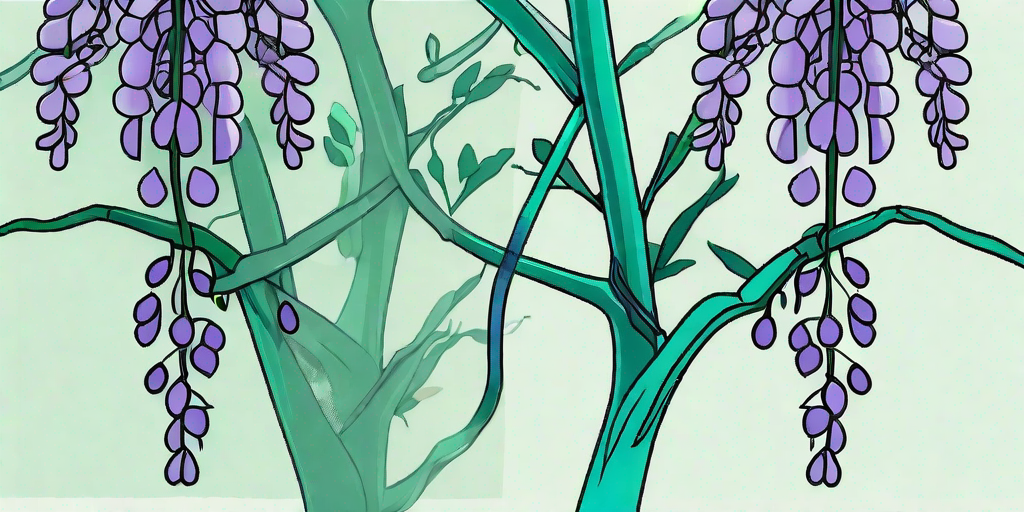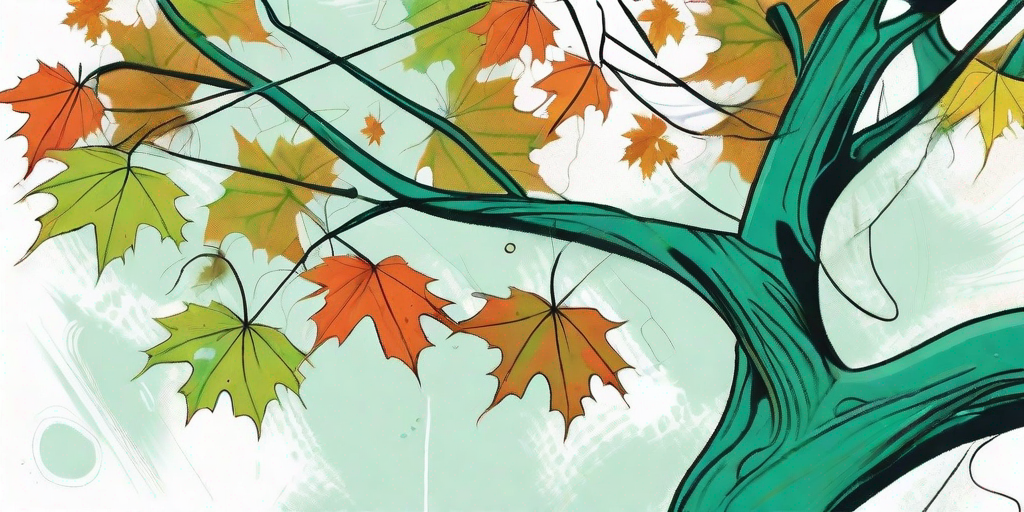
Winter can be a tough time for your begonias, but fear not, dear plant parents! With a little bit of knowledge and a dash of TLC, you can help your begonias thrive through the chilly season. So, grab a hot cup of cocoa, put on your favorite fuzzy socks, and let's dive into the world of winter begonia care.
Understanding Your Begonias
Before we start our winter survival guide, it's important to understand what makes begonias tick. These charming plants are native to tropical and subtropical regions, which means they're not exactly fans of the cold. But don't let that deter you! With the right care, your begonias can weather the winter like a champ.
There are over 1,800 species of begonias, each with their own unique needs. However, most begonias have some common requirements: they love humidity, they need well-draining soil, and they prefer indirect light. Keep these in mind as we delve into our winter care tips.
Preparing Your Begonias for Winter
As the saying goes, "An ounce of prevention is worth a pound of cure." This is especially true when it comes to winterizing your begonias. Here's how to get your plants ready for the cold season.
Check for Pests
Before you start winterizing your begonias, it's a good idea to check for pests. These little critters can wreak havoc on your plants, especially during the winter when your begonias are more vulnerable. Look for signs of aphids, spider mites, and mealybugs. If you spot any, treat your plants with an insecticidal soap or neem oil.
Remember, pests can be sneaky, so check the underside of the leaves and the base of the plant. And don't forget to quarantine any infected plants to prevent the pests from spreading to your other begonias.
Adjust Watering and Feeding
As the days get shorter and the temperatures drop, your begonias will enter a period of dormancy. This means they'll need less water and fertilizer than they do in the warmer months. Overwatering or overfeeding can lead to root rot and other problems, so it's best to err on the side of caution.
How much should you water your begonias in winter? A good rule of thumb is to let the top inch of soil dry out between waterings. As for feeding, most begonias will be happy with a half-strength dose of fertilizer once a month.
Keeping Your Begonias Happy During Winter
Now that your begonias are prepped for winter, it's time to focus on keeping them happy and healthy during the cold months. Here's how.
Provide Adequate Light
Winter days are short and often cloudy, which can be a challenge for your light-loving begonias. To ensure they get enough light, consider moving them to a south-facing window. If that's not an option, you might want to invest in a grow light. These handy devices can provide your begonias with the light they need to thrive.
But remember, while begonias love light, they're not fans of direct sunlight. Too much direct light can scorch their leaves, so make sure to provide them with filtered or indirect light.
Keep the Humidity High
Remember how we said begonias love humidity? Well, winter air can be dry, which can cause your begonias to become dehydrated. To keep the humidity high, you can mist your plants, use a pebble tray, or invest in a humidifier. Your begonias will thank you!
But be careful not to overdo it. Too much humidity can lead to fungal diseases. Aim for a humidity level of around 50% for optimal begonia health.
FAQs
- Do begonias need to be brought indoors in winter?
- Yes, most begonias are not frost-tolerant and should be brought indoors when the temperatures start to drop.
- Can begonias survive the winter?
- Yes, with the right care, begonias can survive and even thrive during the winter months.
- What should I do if my begonia's leaves start to drop in winter?
- Leaf drop can be a sign of stress. Check your watering and lighting conditions, and adjust as necessary.
Conclusion
Winter can be a challenging time for your begonias, but with a little bit of preparation and care, your plants can thrive during the cold months. Remember to check for pests, adjust your watering and feeding, provide adequate light, and keep the humidity high. And most importantly, enjoy the process! After all, gardening is about more than just keeping plants alive; it's about the joy and satisfaction that comes from nurturing a living thing.
So, don your winter woollies, give your begonias a little extra love, and watch as they reward you with their vibrant colors and lush foliage all winter long. Happy gardening!















